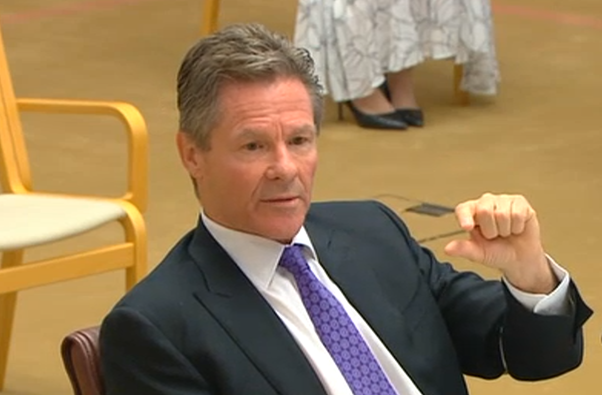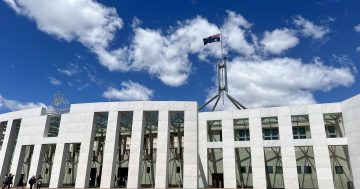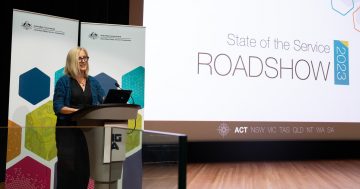
APS Commissioner Peter Woolcott in Senate Estimates: “The relationship between the APS and ministers and their offices is, in part, an unfinished piece of business for us.” Photo: Screenshot.
Training will soon be available for ministerial staff in a bid to improve their often salty working relationships with the public service, Senate Estimates has been told.
The Thodey Review pinpointed the strained relationship between ministerial staff and the public service as an area of concern and the Australian Public Service Commission (APSC) has been running courses for public servants in its new APS Academy.
But now it intends to also focus on the offices of ministers and Opposition spokespeople, conceding that more needs to be done to improve the situation.
APS Commissioner Peter Woolcott said this friction point was a very real issue for the public service, in response to a question from Greens Senator Larissa Waters, who noted former Liberal staffer Brittany Higgins’ assessment that ‘upstairs, downstairs’ arrangements – where young, inexperienced ministerial advisers had more influence than long-term departmental staff – were problematic.
My Public Sector
“I think the relationship between the Australian Public Service and ministers and their offices is, in part, an unfinished piece of business for us,” he said.
“When the relationship works well – when a minister, his office and his department or agency work well together – that is where you see governance at its best. When it doesn’t work so well is when you see problems emerge.”
Mr Woolcott said a high-level reference panel set up in September 2020 after the Thodey Review was still working on developing a full education program to help the public service deal better with the ministers’ offices.
He said some training courses were now starting to run in the new APS Academy on how to work with the ministerial office, the operational environment, the pressures and the lines of engagement.
“We now plan to flip this after the election to actually also look to train MOP (Members of Parliament) staff – both government staff and opposition staff – in how to work with the public service, how to get the best out of the public service and where the lines are,” Mr Woolcott said.
“I agree with you completely, and I agree with Thodey, that this is an important piece of work.
“It’s still in its infancy but I’m really encouraged by the quality of the reference panel and the quality of the work that we’re starting to do here.”
Mr Woolcott said the panel had also been working on reference material relating to departmental liaison officers, who work in ministers’ offices to ensure effective relationships and appropriate communication between these parties. He said the material would cover “how they should work, in transition to a new minister but also in transition to a new government”.
“And there’s a lot of material that will eventually be produced which will come up on our website,” he said.
Mr Woolcott also told Estimates that the APS was looking to centralise recruitment more in response to a competitive jobs market, particularly when it comes to technology and data specialists.
“We’re doing an awful lot of work at the moment around how to focus on attraction of the talent as graduates,” he said.
“We’ve got big brand names like Department of Defence, Prime Minister and Cabinet, Foreign Affairs and Treasury, but at the same time we’re looking to centralise recruitment on an opt-in basis wherever it makes sense.
“For example, the Australian Bureau of Statistics now recruits for the whole Commonwealth on an opt-in basis for data graduates. DTA [Digital Transformation Agency] does and now APSC manages that for digital graduates and new starters as well.
“We’re also looking at Treasury to do the same for economists. We’re looking for tax to do the same thing for HR specialists. There’s a whole range of areas that we’re looking to start to centralise in terms of bringing in talent on behalf of the whole Commonwealth.”




















